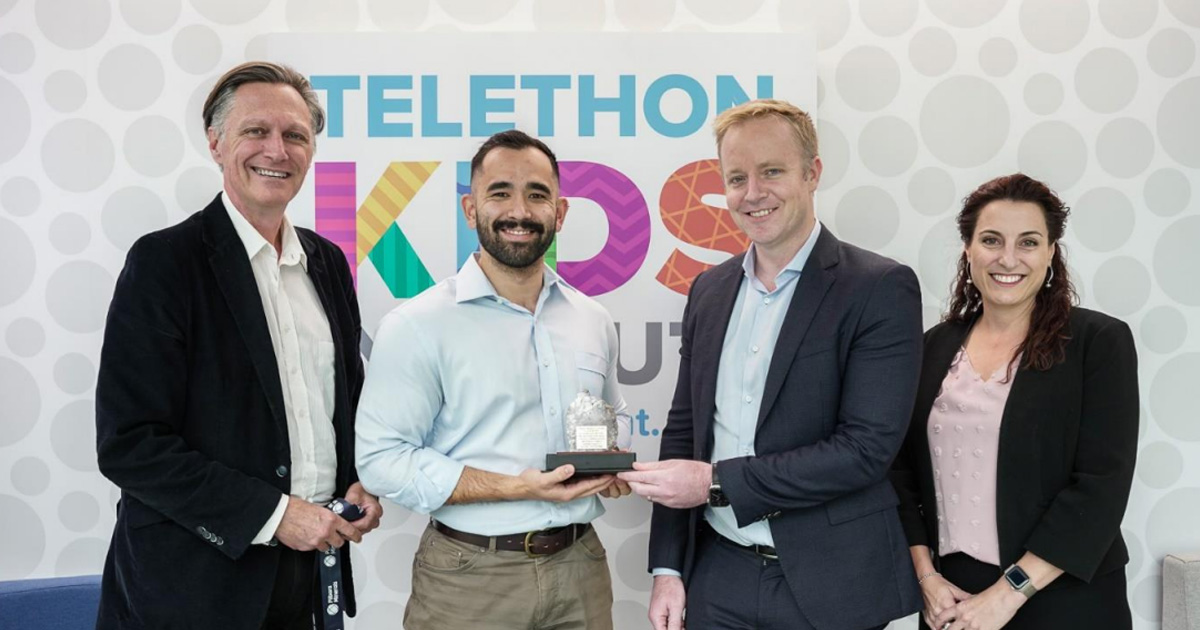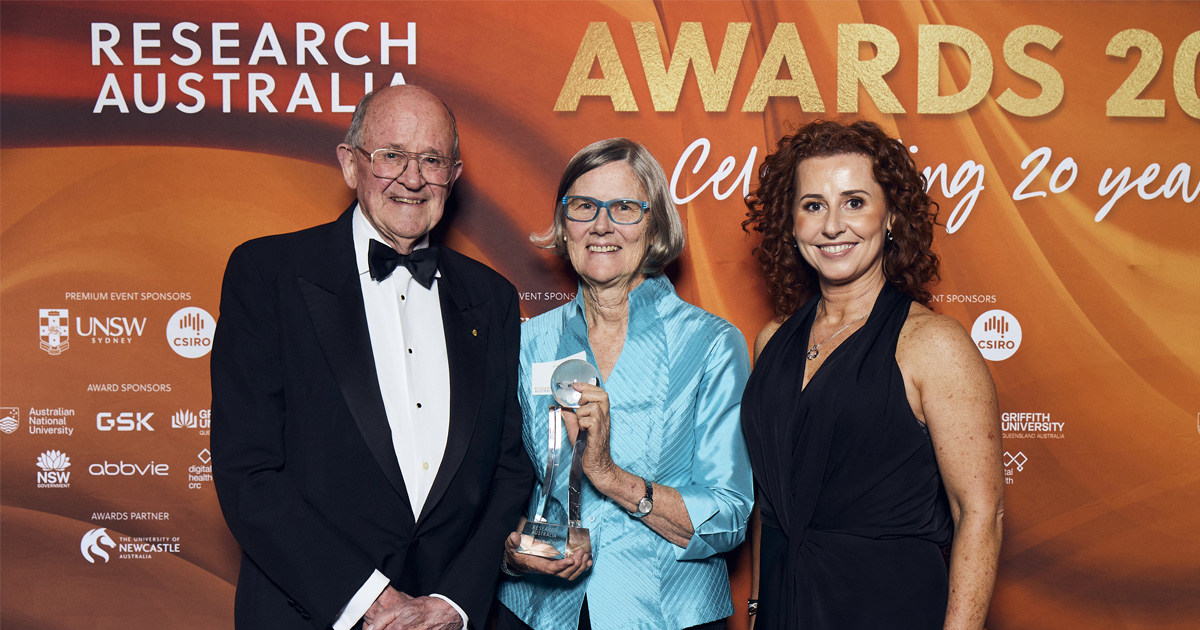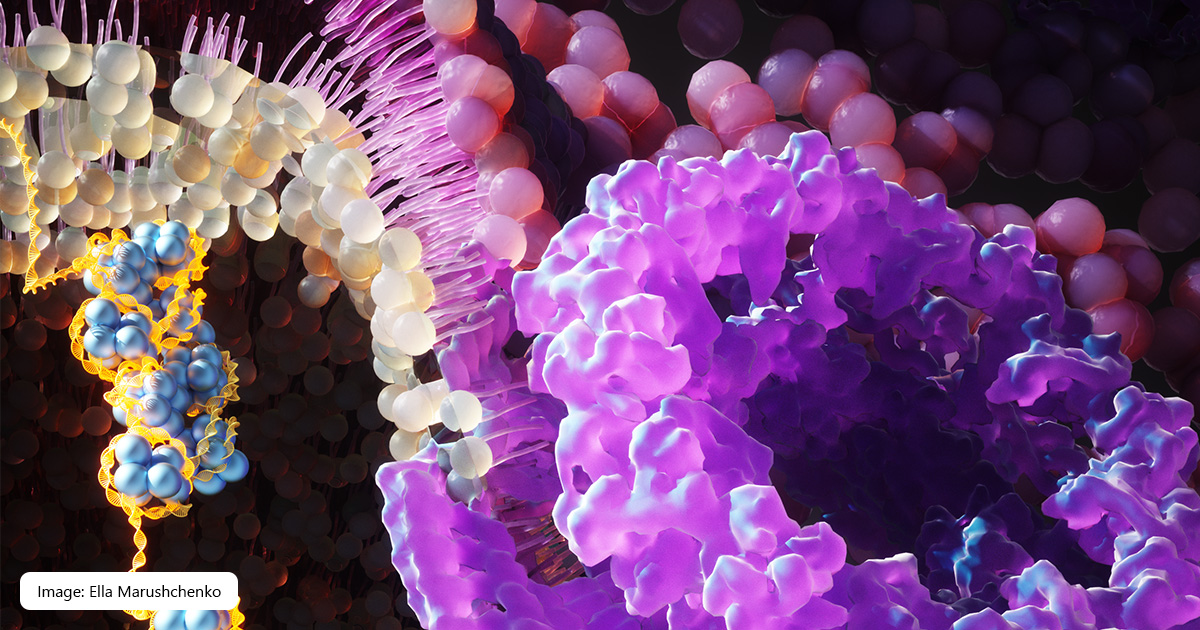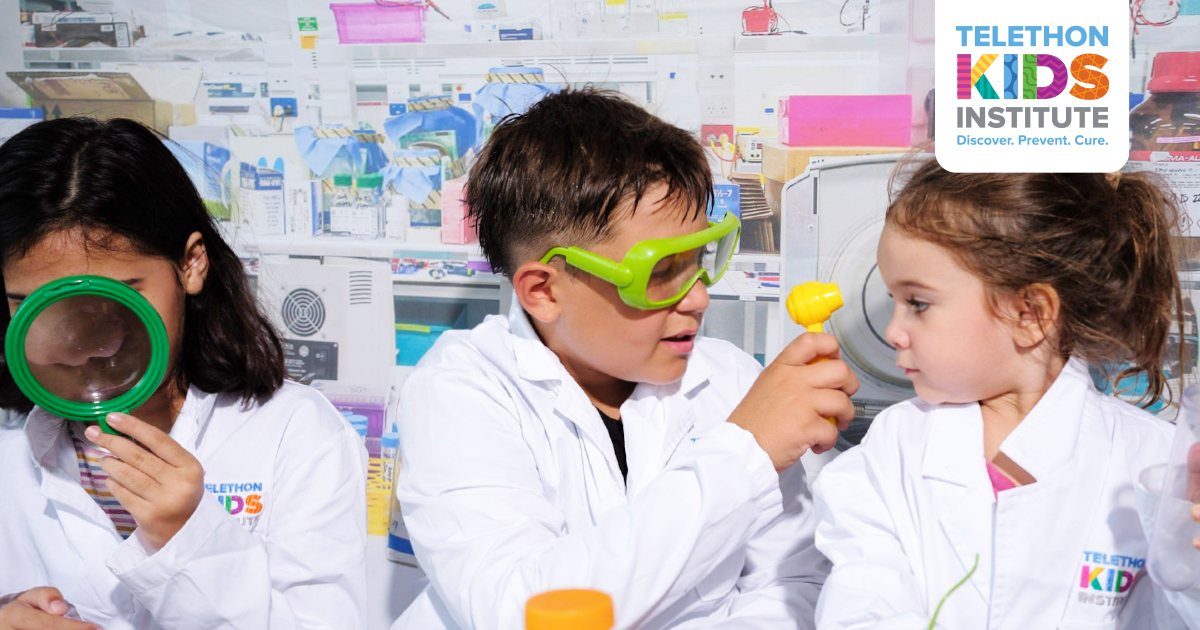Search

News & Events
Decades-old work picked up by Google’s DeepMind leads to global scientific breakthroughA researcher's work from 20 years ago has helped to crack one of biology’s biggest mysteries.

News & Events
Celebrating kids and families with disabilityOn International Day for People with Disability this Sunday, The Kids Research Institute Australia celebrates the children and families we work with in our research, as we strive for better outcomes for kids with disability.

News & Events
Pilbara Minerals supports the mental health of FIFO familiesAn innovative and impactful three-year research partnership between Pilbara Minerals and The Kids Research Institute Australia has been established to support the mental health and wellbeing of fly-in fly-out (FIFO) workers and their families.

News & Events
International funding boost for global malaria researchThe Malaria Atlas Project (MAP) – which houses the world’s largest malaria database and is at the forefront of efforts to track and tackle the disease – has been awarded more than $16 million by the Bill & Melinda Gates Foundation.

News & Events
Flagship award for folate champion Carol BowerOne of The Kids Research Institute Australia’s most influential researchers, who has played a seminal role in birth defect research and advocacy over a four-decade career, has won the Peter Wills Medal – the Australian research community’s flagship award.

News & Events
Multi-million-dollar investment in child health to support vital researchFour The Kids Research Institute Australia researchers have received prestigious fellowships and four significant cohort studies led or co-led by The Kids have received key grants under two new funding programs supported by the State Government’s Future Health Research and Innovation (FHRI) Fund.

News & Events
Stem cell ‘memory’ discovery offers hope for new disease breakthroughsAustralian researchers have developed a new method to ‘wipe the memory’ of reprogrammed human cells to better mimic embryonic stem cells, in a discovery that has significant implications for the treatment of several serious diseases.

News & Events
Broome kids get their hands dirty with real-life scienceThe Kids Research Institute Australia is bringing science to the Kimberley, with a series of free activities for children and families in Broome in the leadup to National Science Week.

News & Events
EVENT: Join us for the Broome Festival of STEMJoin us in celebrating all things Science, Technology, Engineering & Mathematics at the Broome Festival of STEM.
